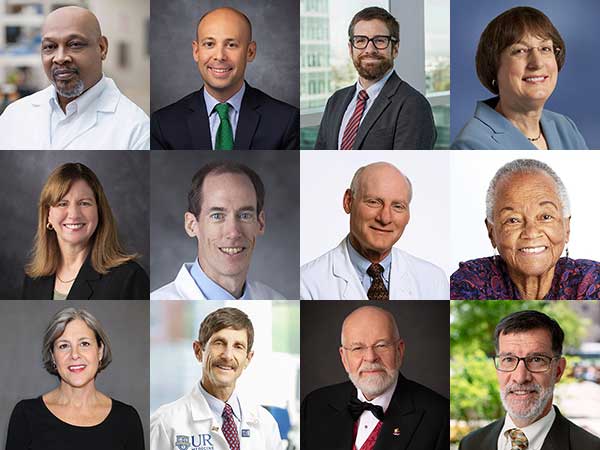

City of Hope researchers presented compelling real-world evidence and novel combination therapies at the 2025 ASCO Annual Meeting, with findings that could reshape treatment approaches for breast, colorectal, renal, and prostate cancers.
The data presented highlighted the growing importance of genomic biomarkers and large-scale population studies in guiding precision oncology decisions.
Breast cancer: expanding T-DXd rechallenge protocols
Hope S. Rugo, M.D., director of City of Hope’s Women’s Cancers Program, presented pivotal real-world data supporting the safety of readministering trastuzumab-deruxtecan to metastatic breast cancer patients following low-grade interstitial lung disease. The multicenter retrospective analysis of 712 patients demonstrated that T-DXd rechallenge after grade 1 ILD resolution is feasible, with prolonged clinical benefit observed in most cases.
The study revealed that 47 patients underwent rechallenge, with 81% experiencing initial grade 1 ILD. Critically, patients treated with steroids showed significantly faster radiographic improvement (median 24 days versus 82 days without steroids), establishing the importance of early corticosteroid intervention.
Among rechallenged patients, recurrent ILD rates remained low, with the majority classified as grade 1, and no grade 5 events reported. Patients remained on T-DXd for a median of 215 days post-rechallenge.
“The real-world data shows that patients with metastatic breast cancer who were treated with trastuzumab-deruxtecan experienced prolonged clinical benefit even if it had to be discontinued temporarily due to low-grade interstitial lung disease,” Rugo noted, emphasizing the clinical significance for HER2+ and HER2-low patient populations where T-DXd represents a cornerstone therapy.
Renal cell carcinoma: genomic evolution and biomarker discovery
Sumanta Kumar Pal, M.D., presented precision medicine findings from the IMmotion010 trial, identifying specific genomic biomarkers that predict benefit from adjuvant atezolizumab in renal cell carcinoma patients. Despite the trial’s negative primary endpoint, biomarker analysis of 754 patient samples revealed clinically meaningful subgroups.
This finding is noteworthy because we are seeing a novel combination therapy shrink tumors in a patient population with advanced solid tumors that historically have been nonresponsive to immune checkpoint inhibitors.
Marwan Fakih
The research categorized patients into seven molecular subgroups, with cluster 6 (stromal/proliferative) patients demonstrating apparent benefit from atezolizumab therapy. The KIM-1 biomarker emerged as the most robust predictor of atezolizumab efficacy, with KIM-1-high patients and those with elevated Teff cell populations showing prolonged disease-free survival.
“KIM-1 is the most robust predictor of outcome with atezolizumab,” Pal explained. “We performed whole transcriptome sequencing of RCC tumors before using atezolizumab as well as at disease recurrence, when able, and spotlighted a genomic evolution in disease progression that offers insights into why patients with RCC relapse.”
Colorectal cancer: breakthrough in MSS disease
Marwan Fakih, M.D., reported promising Phase II results for the combination of checkpoint inhibitors Vilastobart (XTX101) and atezolizumab in microsatellite stable metastatic colorectal cancer—a population historically unresponsive to immunotherapy. Among 40 patients, 27% without liver metastases achieved partial responses, defined as greater than 50% target lesion shrinkage.
The combination demonstrated notable safety, with low rates of severe immune-related adverse events and treatment discontinuation. Patients achieving tumor shrinkage showed significant decreases in circulating tumor DNA, confirming clinical efficacy. The finding represents a potential breakthrough for the 96% of metastatic colorectal cancer cases that are MSS.
“This finding is noteworthy because we are seeing a novel combination therapy shrink tumors in a patient population with advanced solid tumors that historically have been nonresponsive to immune checkpoint inhibitors,” Fakih stated.
Prostate cancer: cardiovascular safety in mCRPC treatment selection
Alan H. Bryce, M.D., presented large-scale real-world evidence comparing cardiovascular safety between abiraterone acetate and enzalutamide in metastatic castration-resistant prostate cancer. The analysis of more than 68 million Medicare and Medicaid beneficiaries confirmed clinical trial findings showing higher cardiovascular event rates with abiraterone acetate.
Real-world data studies like this one are crucial because they provide a broader, more representative perspective on health and disease compared to data from clinical trials.
Alan H. Bryce
The study found statistically significant increased risks of myocardial infarction, stroke, coronary revascularization, heart failure, arrhythmias, and thromboembolism with abiraterone acetate compared to enzalutamide. Importantly, mortality risk remained higher with abiraterone acetate regardless of baseline cardiovascular disease history.
“Real-world data studies like this one are crucial because they provide a broader, more representative perspective on health and disease compared to data from clinical trials,” Bryce saod, highlighting the value of population-based studies in informing clinical practice.
City of Hope® is one of the largest and most advanced cancer research and treatment organizations in the U.S., with its National Medical Center named top 5 in the nation for cancer by U.S. News & World Report. To learn more about City of Hope, visit: www.cityofhope.org.
Discover the latest innovations in cancer research on City of Hope’s new podcast, “On the Edge of Breakthrough: Voices of Cancer Research.” Available on Spotify, Apple Podcasts and at cityofhope.org/edge-of-breakthrough.










